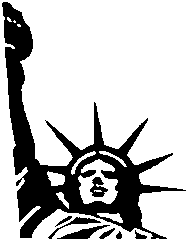SIGINT, as this signals intelligence is known, is considered to be the most important form of intelligence gathering. It is also the most sensitive, since if discovered it can be embarrassing to both those sending the information and to those who are illicitly reading it. A nations's diplomatic, economic or other plans can be intercepted and read, even if they try to keep the information confidential by encoding it. SIGINT has five main sub-groups of which the one we are most interested in is COMINT, or communications intelligence. Traditionally, COMINT targeted the diplomatic correspondence of foreign nations and in the past the US intercepted the correspondence of its ally Great Britain during the Suez crisis of 1956. We have heard of similar interceptions of Libya's communications with East Germany in 1985 when a West Berlin nightclub was bombed and in the interception of Iraq's traffic with its embassy in Japan in the 1970's. The US doesn't confine its interest to just embassy traffic, it looks at internal departmental traffic within a government, it is interested in ministerial communications, military, police and security services, arms factories and so on. So far you may conclude this may be no bad thing and some of the governments concerned probably deserve such treatment anyway. However, ECHELON is designed for primarily non-military targets: governments, organizations, multinational corporations and businesses in virtually every country. They also target political parties and terrorist groups and those involved in the cultivation, production and distribution of narcotics. If you call yourself something like Quebeckers for Freedom or Liberty you could well attract the attention of one or more intelligence gathering operations. Through the sharing of information among the signatories of the 1948 agreement each participant is able to retain what is euphemistically known as From the US to the UK The largest intelligence gathering station in the entire world is at Menwith Hill in Yorkshire, England, and is wholly operated by the NSA. Menwith is tasked with monitoring all cross Atlantic and European communications traffic. A year ago British Telecom accidentally released some top secret documents to the defense lawyers of two trespassers on Menwith Hill. The documents showed that the three main optical fibre cables in the UK – each carrying 100,000 calls at any point in time – actually pass through the Menwith facility to facilitate spying on UK citizens. According to a press report of the time the judge was quite unhappy with the telephone company and made the astonishing statement that This and other discoveries made by The current battle over the right to sell technology which enables ordinary, and not so ordinary, people to encode their communications is directly related to this world wide, US led, interference in the privacy of the citizenry. Much of the debate revolves around the wish of the police and other government snoopers to be able to read encrypted messages. They are proposing that if you use such encoding schemes you must deposit the key with them so that they can read your correspondence should they wish. Rather like your local police chief asking for the key to your house It would seem that in this alleged best country in the world we may be in danger of seeing our rights to freedom of expression and association violated as well as our right to privacy. This in spite of the Charter of Rights and Freedoms (sections 2, 7, 8), the International Covenant on Civil and Political Rights (articles 17, 22) and the Universal Declaration of Human Rights (articles 12, 19, 20). Makes you think, doesn't it?
|
